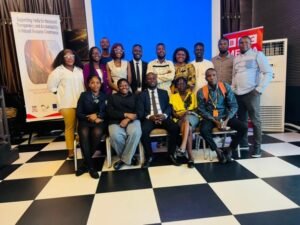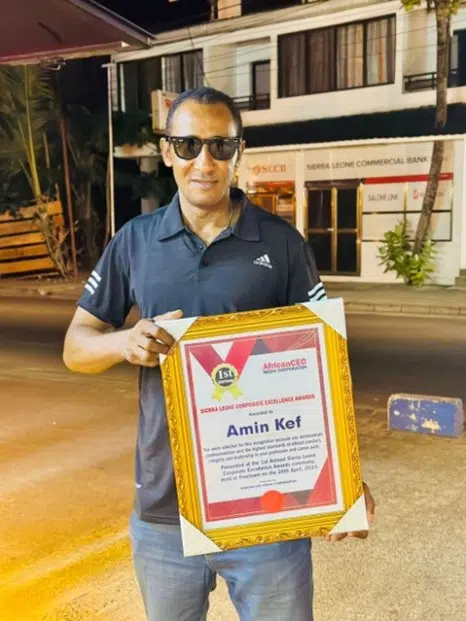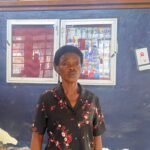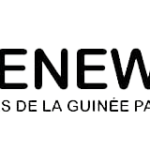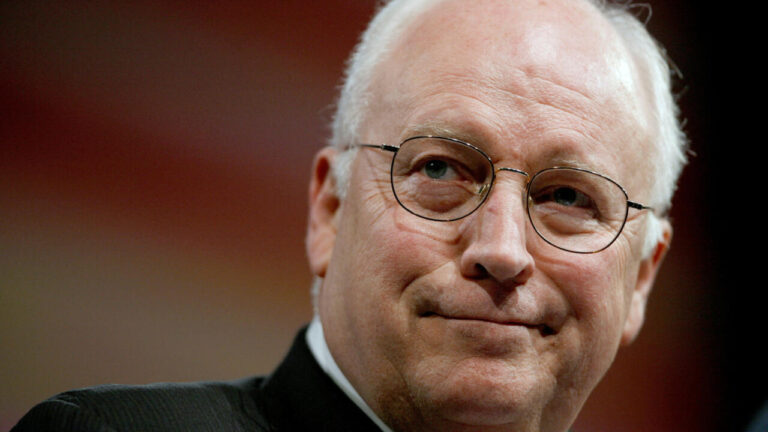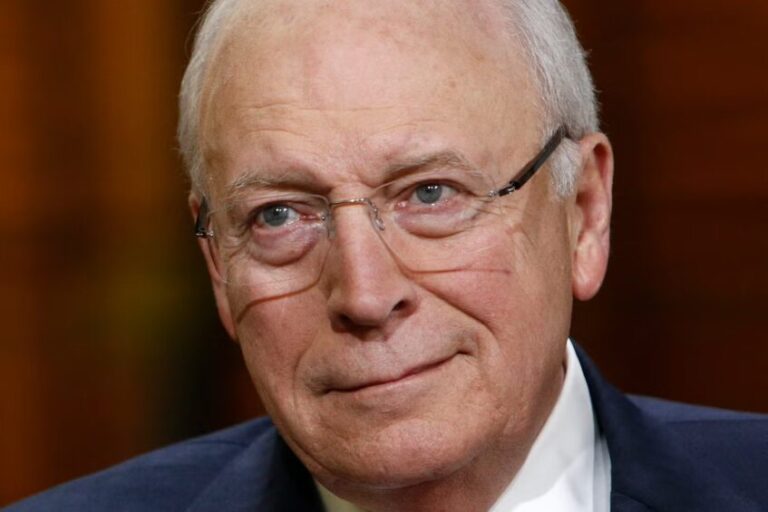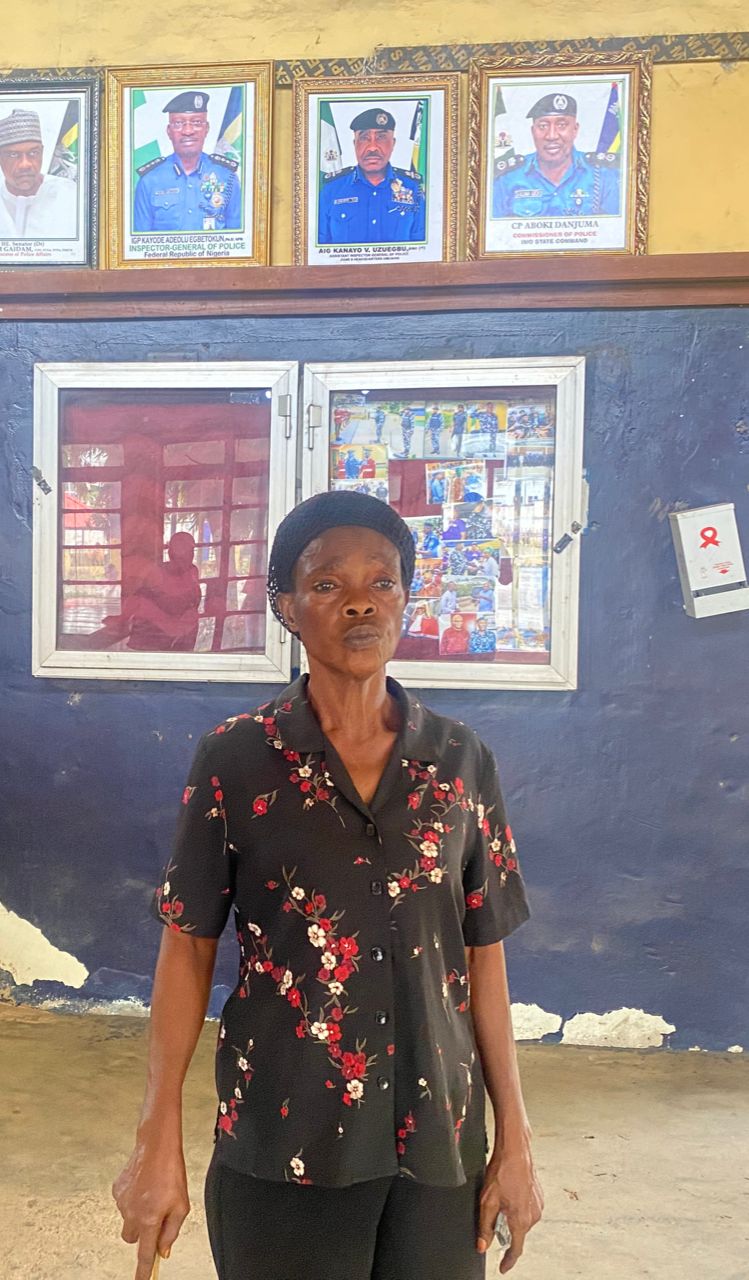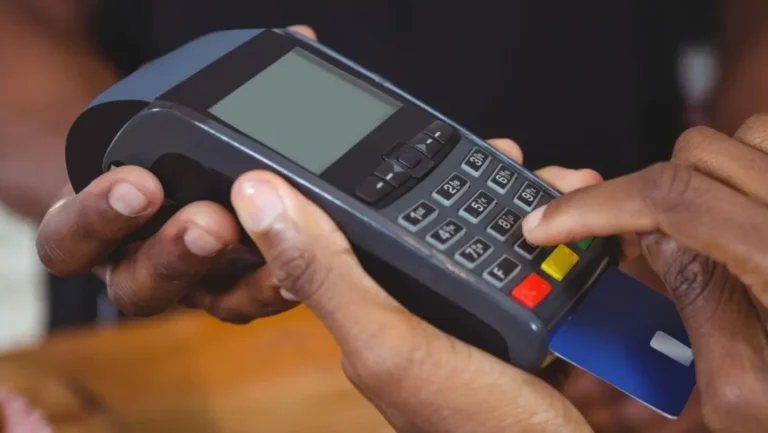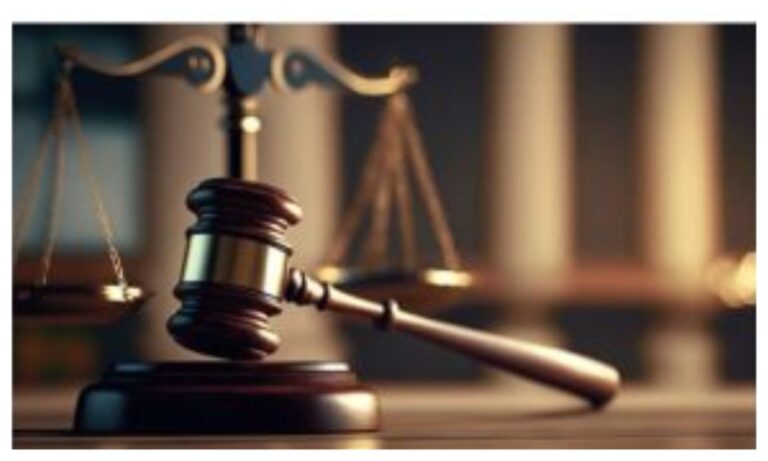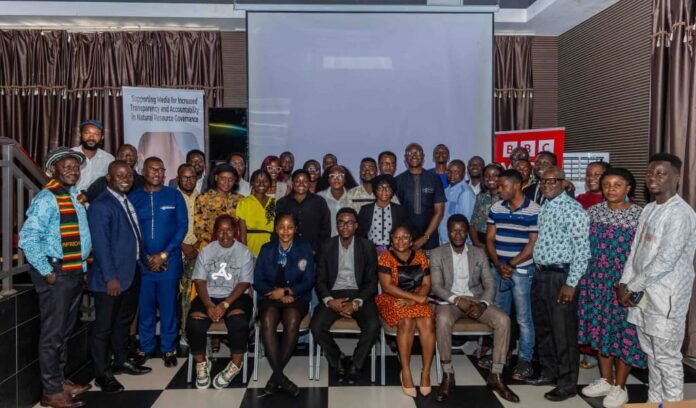
By Ibrahim John Sesay
The BBC Media Action Sierra Leone has successfully concluded its year-long natural resource governance project; an investigative reporting fellowship focused on the extractive industries in Sierra Leone. The closing ceremony was held on Tuesday, October 28, 2025, at the Atlantic Lumley Hotel in Freetown, marking the end of a transformative initiative that strengthened media capacity in promoting accountability and transparency in the country’s natural resource sector.
Funded by the Deutsche Gesellschaft für Internationale Zusammenarbeit (GIZ) GmbH on behalf of the German Federal Ministry for Economic Cooperation and Development (BMZ) and co-funded by the European Union (EU), the project was designed to enhance journalists’ skills in data-driven storytelling, ethical reporting and investigative journalism.
The fellowship brought together 30 journalists from across Sierra Leone, representing both print and broadcast media institutions. Participants underwent intensive online and in-person training facilitated by BBC Africa Eye investigative journalist and producer, Tamasin Ford. The modules covered environmental reporting, data analysis, fact-checking, interviewing, storytelling techniques and digital safety. Fellows were also mentored by senior journalists and resource governance experts who provided practical guidance throughout their investigative projects.
Speaking at the closing ceremony, the Country Director of BBC Media Action Sierra Leone, Edward Kargbo, commended the participants for their hard work and dedication, noting that their investigations have demonstrated the crucial role of journalism in promoting good governance in resource-rich countries. “Through this fellowship, we have seen the transformative power of journalism in holding institutions accountable and amplifying community voices,” Edward Kargbo stated. He added that the fellowship has inspired a new generation of journalists to pursue fact-based reporting that drives reform and strengthens public trust.
Joining virtually, BBC trainer, Tamasin Ford, praised the fellows for their outstanding commitment and creativity, particularly those who investigated cases at Sierra Rutile, Lake Sonfon, Yele and Rokel River. “What they produced was great,” she said, noting that their work reflected a deep understanding of the environmental and social issues surrounding resource extraction.
In his remarks, Joseph Kamara, Technical Adviser representing GIZ, reaffirmed his organization’s commitment to supporting media development and natural resource governance in Sierra Leone. He expressed satisfaction with the project’s outcomes, emphasizing that “a vibrant and independent media sector is essential for sustainable development” and urging journalists to continue serving as watchdogs for the public interest.
President of the Sierra Leone Association of Journalists (SLAJ), Alhaji Manika Kamara, commended the fellows for their compelling investigative stories, describing them as evidence of what the media can achieve when given the right tools and resources. “What we have seen here today shows that if the media has the necessary support, we can do the unthinkable,” he remarked. He thanked BBC Media Action and GIZ for investing in journalists and urged continued support for community radio stations and the National Fund for Public Interest Media.
Alhaji Manika Kamara also cited the work of Yeanor Kabia, President of the Sierra Leone Reporters Union, whose investigation into Lake Sonfon exposed the exploitation of local communities. “Indeed, Lake Sonfon is gone. Nothing the people are benefiting from; it’s just exploitation,” he lamented, calling for stronger accountability in the sector.
Throughout the fellowship, participants produced groundbreaking stories on illegal mining, environmental degradation, revenue mismanagement and community displacement. Several of these reports were published in newspapers and broadcast nationwide, sparking public discussion and policy interest.
One fellow, Benedict Abu-Bakar Conteh from Makeni, described the experience as life-changing. He said the training deepened his understanding of the extractive sector and strengthened his confidence to pursue in-depth, evidence-based reporting. Mabinty Kamara, Editor of Politico Newspaper, also lauded the mentorship component, saying it offered invaluable editorial feedback that improved the quality of her investigations.
The closing event featured a panel discussion moderated by Marian Tina Conteh, Training Coordinator of BBC Media Action Sierra Leone, with contributions from Emmanuel Gbondo Esq. of the National Movement for Justice and Development, Abdul K. Dumbuya of the Conservation Society Sierra Leone, and Fatmata Kuyateh from the Environmental Protection Agency. A short documentary showcasing fellows’ fieldwork and story highlights was screened to warm applause from the audience.
BBC Media Action expressed gratitude to GIZ, the European Union, and all partners for their continued collaboration and reaffirmed its commitment to strengthening Sierra Leone’s media landscape. As the fellowship concludes, many of the trained journalists are expected to continue producing impactful stories that promote transparency, amplify citizens’ voices, and drive positive change across Sierra Leone.
